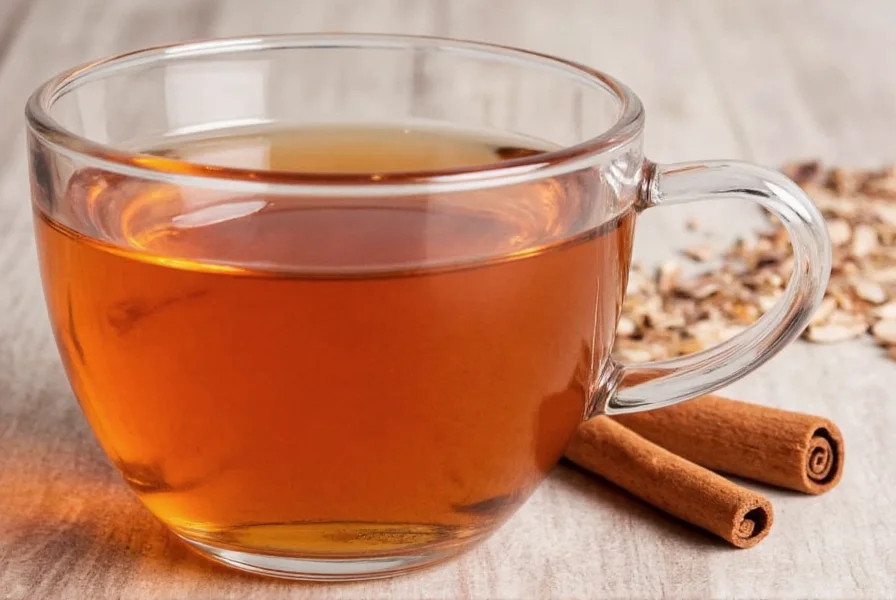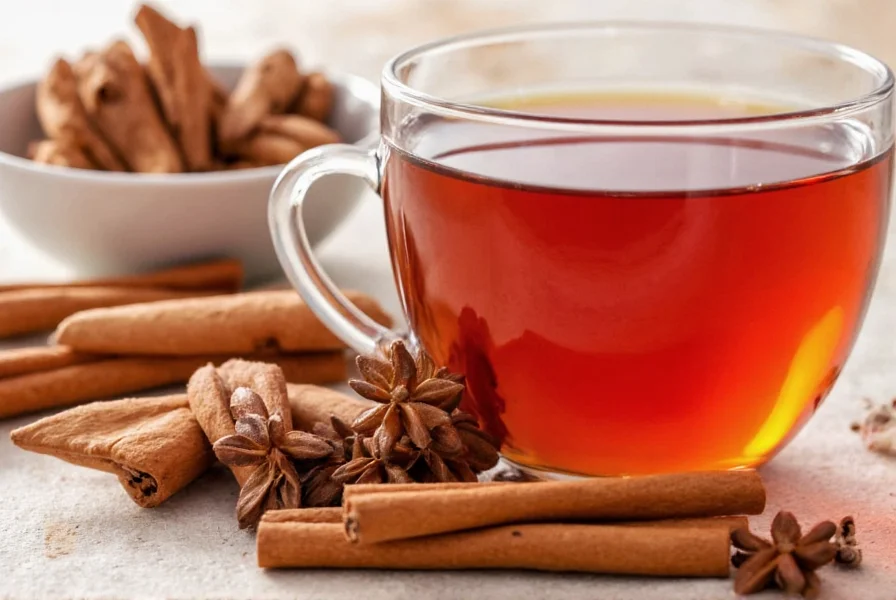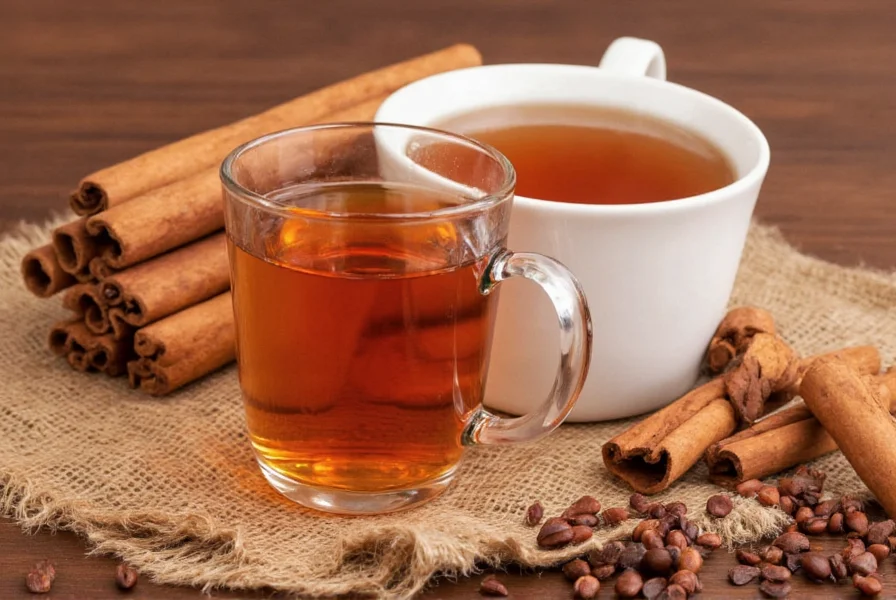Cinnamon spice tea has been cherished across cultures for centuries, not just for its warm, comforting flavor but for its potential health-promoting properties. Modern research continues to validate many traditional uses of this aromatic beverage, revealing how this simple drink made from Cinnamomum bark steeped in hot water delivers measurable physiological benefits.
Understanding Cinnamon's Active Components
The health benefits of cinnamon spice tea primarily come from its rich composition of bioactive compounds. Cinnamaldehyde (responsible for cinnamon's distinctive flavor and aroma), polyphenols, and other antioxidants work synergistically to produce various health effects. These compounds give cinnamon tea its characteristic warmth while providing therapeutic potential.
Key Evidence-Supported Health Benefits
Blood Sugar Regulation and Metabolic Support
One of the most well-documented benefits of cinnamon spice tea good for is blood sugar management. Multiple studies, including research published in the Journal of the Academy of Nutrition and Dietetics, indicate that cinnamon may improve insulin sensitivity and help moderate post-meal blood glucose spikes. For individuals monitoring their glucose levels, regularly enjoying cinnamon tea benefits may provide modest but meaningful support to conventional approaches.
| Benefit | Scientific Support Level | Recommended Consumption |
|---|---|---|
| Blood sugar regulation | Moderate-High | 1-2 cups daily |
| Antioxidant protection | High | Regular consumption |
| Anti-inflammatory effects | Moderate | Regular consumption |
| Digestive support | Moderate | After meals |
Powerful Antioxidant Protection
Cinnamon ranks exceptionally high on the ORAC (Oxygen Radical Absorbance Capacity) scale, which measures a food's antioxidant capacity. When brewed as tea, it delivers these antioxidants in a readily absorbable form. Regular consumption of cinnamon spice tea for antioxidant benefits may help combat oxidative stress, potentially reducing cellular damage associated with aging and chronic disease development.
Natural Anti-Inflammatory Properties
Chronic inflammation underlies many health conditions, and cinnamon contains compounds that may help modulate inflammatory pathways. Research in Molecular Nutrition & Food Research suggests that cinnamon's anti-inflammatory effects could benefit those with inflammatory conditions. Drinking cinnamon tea benefits may provide a gentle, natural approach to managing everyday inflammation.
Cardiovascular Health Support
Emerging evidence indicates that cinnamon spice tea good for heart health through multiple mechanisms. Studies show it may help maintain healthy cholesterol levels and support normal blood pressure. While not a replacement for medical treatment, incorporating cinnamon tea into a heart-healthy lifestyle shows promise for cardiovascular support.
Digestive Wellness Benefits
Traditional medicine systems have long used cinnamon for digestive issues, and modern science provides some validation. Cinnamon tea benefits include soothing digestive discomfort, reducing bloating, and potentially supporting healthy gut bacteria. Many find that a cup of cinnamon spice tea after meals aids digestion and provides comforting relief from occasional gastrointestinal discomfort.
Scientific Evidence Overview
A 2020 meta-analysis in Nutrition Reviews examined 18 clinical trials involving cinnamon supplementation. While most studies used cinnamon capsules rather than tea, the bioactive compounds are similar when properly brewed. The analysis concluded that cinnamon demonstrated statistically significant effects on fasting blood glucose and HbA1c levels, with more modest but notable effects on lipid profiles.
It's important to note that while these findings are promising, cinnamon spice tea benefits should be viewed as complementary to—rather than replacements for—conventional medical treatments. The concentration of active compounds in tea is generally lower than in concentrated supplements used in clinical studies.
Preparing Authentic Cinnamon Spice Tea
To maximize the health benefits of cinnamon tea, proper preparation matters. Here's a simple method:
- Use 1-2 inches of high-quality Ceylon cinnamon (preferred for lower coumarin content)
- Add to 8-12 ounces of freshly boiled water
- Steep for 10-15 minutes (longer steeping extracts more compounds)
- Strain and enjoy plain or with a squeeze of lemon
For enhanced benefits, consider adding complementary ingredients like fresh ginger (for additional anti-inflammatory effects) or a small amount of black pepper (to increase absorption of beneficial compounds). Avoid adding excessive sweeteners, which would counteract some metabolic benefits.

Safety Considerations and Limitations
While cinnamon spice tea benefits are numerous, certain precautions are warranted:
- Coumarin content: Cassia cinnamon (the more common variety) contains higher levels of coumarin, which in large amounts may affect liver function. Those with liver conditions should opt for Ceylon cinnamon or limit consumption.
- Blood thinning: Cinnamon may have mild blood-thinning effects, so those on anticoagulant medications should consult their healthcare provider.
- Pregnancy: While moderate consumption is generally considered safe during pregnancy, excessive intake should be avoided.
- Not a medical treatment: Cinnamon tea should complement—not replace—medical treatments for conditions like diabetes.
Realistic Expectations for Cinnamon Tea Benefits
It's essential to maintain realistic expectations about what cinnamon spice tea good for. While research supports several health benefits, these effects are generally modest and work best as part of an overall healthy lifestyle. Cinnamon tea won't miraculously cure chronic conditions, but it can be a valuable component of a wellness-focused routine.
The cumulative effect of regular, moderate consumption appears most beneficial. Think of cinnamon spice tea as a supportive element in your health regimen rather than a standalone solution. When combined with other healthy habits, its benefits become more meaningful over time.
Conclusion: A Simple Beverage with Substantial Benefits
Cinnamon spice tea represents a perfect intersection of traditional wisdom and modern science. Its comforting flavor masks a complex array of bioactive compounds that offer genuine health benefits when consumed regularly. From supporting healthy blood sugar levels to providing antioxidant protection and aiding digestion, this simple beverage delivers multiple evidence-supported advantages.
By understanding both the potential and limitations of cinnamon tea benefits, you can incorporate this ancient remedy into your modern wellness routine with realistic expectations and maximum benefit. Whether enjoyed as a morning ritual or evening treat, cinnamon spice tea remains one of nature's most accessible and enjoyable health-promoting beverages.

Frequently Asked Questions
How much cinnamon tea should I drink daily for health benefits?
For most adults, 1-2 cups of properly brewed cinnamon tea daily provides optimal benefits without risk of excessive coumarin intake. Each cup should contain approximately 1-2 inches of cinnamon stick steeped for 10-15 minutes. Those with liver conditions or on blood thinners should consult their healthcare provider before regular consumption.
Can cinnamon spice tea help with weight loss?
Cinnamon spice tea may support weight management efforts indirectly by helping regulate blood sugar and reduce cravings, but it's not a direct weight loss solution. Research suggests it may modestly improve insulin sensitivity, which can help prevent fat storage from blood sugar spikes. However, significant weight loss requires comprehensive dietary and lifestyle changes—cinnamon tea alone won't produce dramatic results.
What's the difference between Ceylon and Cassia cinnamon for tea?
Ceylon cinnamon ("true cinnamon") contains significantly lower levels of coumarin than Cassia cinnamon, making it safer for regular consumption. While Cassia is more common and less expensive, Ceylon is preferred for daily tea preparation, especially for those with liver concerns. Ceylon has a more delicate, complex flavor profile compared to Cassia's stronger, spicier taste.
When is the best time to drink cinnamon tea for maximum benefits?
For blood sugar regulation, drinking cinnamon tea benefits are maximized when consumed before or with meals. For digestive support, having it after meals is most effective. Many people find morning consumption provides gentle metabolic support throughout the day, while evening consumption offers relaxation benefits. The optimal timing depends on your specific health goals.
Are there any medications that shouldn't be combined with cinnamon tea?
Cinnamon may interact with certain medications, particularly blood thinners (like warfarin) due to its coumarin content and potential blood-thinning effects. It may also enhance the effects of diabetes medications, potentially causing blood sugar to drop too low. Those taking liver-affecting medications should also exercise caution. Always consult your healthcare provider about potential interactions with your specific medications.











 浙公网安备
33010002000092号
浙公网安备
33010002000092号 浙B2-20120091-4
浙B2-20120091-4